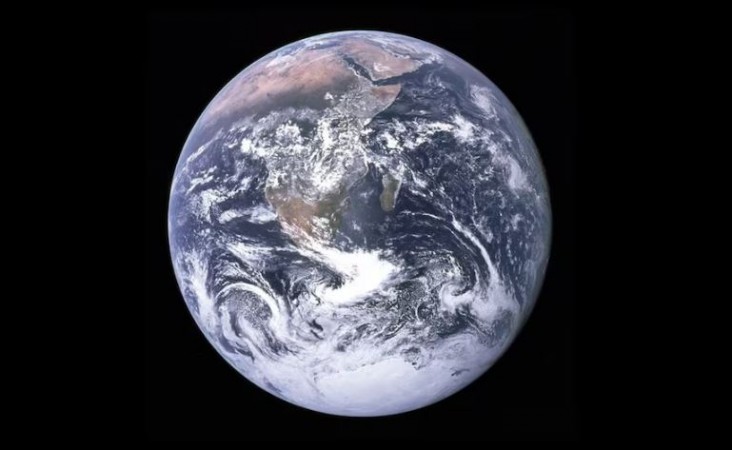
The Earth rotates on its axis, completing a full rotation in about 24 hours, which defines a day on our planet. However, there are reports suggesting that Earth might eventually shift to a 25-hour day. This change stems from the gradual slowing of Earth's rotation speed, affecting the length of a day and subsequently, the duration of a year.
Currently, Earth completes approximately 365 rotations around the Sun in a year, each taking 24 hours. If the day extends to 25 hours due to slower rotation, the total number of days in a year would decrease. Instead of 365 days, it could reduce to around 350 days annually.
Is Earth Slowing Down?
According to a report in Live Science, Earth's rotational speed is indeed decreasing over time. Scientists attribute this deceleration to tidal interactions between Earth and the Moon. These interactions create frictional forces that affect Earth's rotational momentum, gradually lengthening the duration of a day.
Historically, Earth's rotation was faster, with a day lasting approximately 19 hours a billion years ago. The current slowdown is incremental, adding about 1.8 milliseconds to a day every century, translating to a second added per thousands of years. This gradual change indicates that it would take millions of years for a day to extend by an hour.
When Will Earth Have a 25-Hour Day?
Based on current projections, it might take about 200 million years for Earth's day to lengthen by one hour. This immense timescale underscores the gradual nature of Earth's rotational changes and their impact on time measurement.
Reasons Behind Earth's Deceleration
The primary reason for Earth's slowing rotation is tidal friction caused by gravitational interactions between Earth and the Moon. This gravitational pull creates tidal bulges that misalign with Earth's rotational axis, generating frictional forces in Earth's oceans and crust. Over time, these forces dissipate rotational energy, contributing to the lengthening of Earth's day.
In conclusion, while Earth's rotation is currently stable enough for our daily activities, ongoing scientific observations suggest a gradual slowdown. This natural phenomenon highlights the intricate dynamics between celestial bodies and their influence on Earth's rotational mechanics, shaping the very definition of time on our planet.
International Yoga Day Celebrated at ASEAN Secretariat with Indian Mission
Kallakurichi Hooch Tragedy: Toll Climbs to 47, Efforts to Curb Illicit Liquor Sales
If you have a problem with kidney stones, do this best 5 yogasan, you will get rest